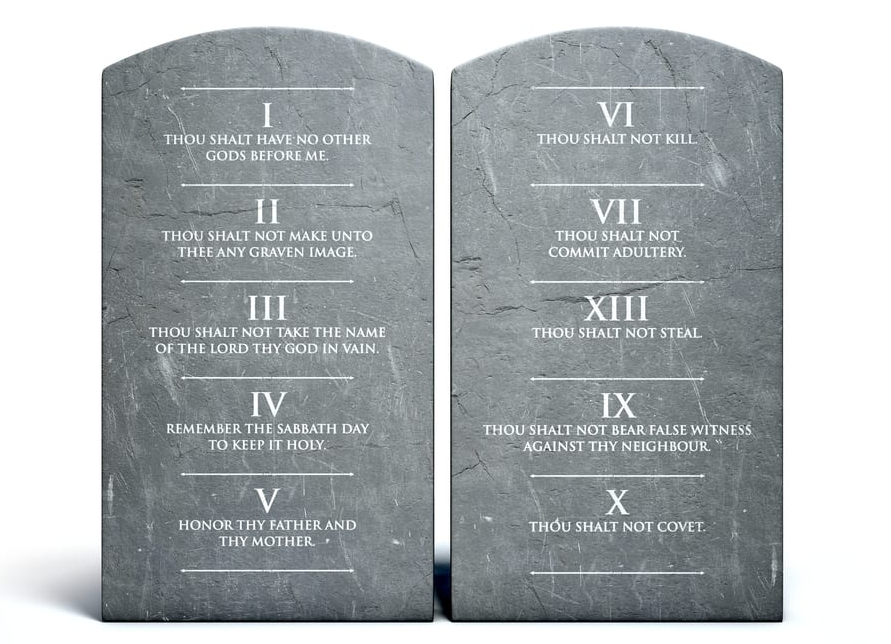Statement by Andrew L Seidel,
Director of Strategic Response
For the Freedom From Religion Foundation

The god of the Bible is on the Nov. 6 ballot in Alabama. A proposed constitutional amendment would allow the government to display his so-called divine law — the Ten Commandments — on every piece of public property in the state.
Amendment 1 unnecessarily rewrites the religious liberty provisions of the Alabama Constitution in alarming ways. There’s actually some good language in the amendment — for instance, prohibiting taxes from going to churches — but that’s already protected under the law, so there’s no need for a change.
This amendment is not meant to protect religious liberty or ensure that the state doesn’t meddle in the administration of churches. It is meant to decorate every piece of government property, especially in public schools, with a biblical law that begins, “I am the Lord your God… You shall have no other gods before me.”
That divine command, while central to Judeo-Christianity, is, to be blunt, un-American. The First Commandment embodies principles that directly conflict with the principles on which the United States was founded. No law can tell an American to worship a god, let alone which god. Americans are free to be godless (and a growing number are), or, if they wish, to worship every god from every holy book.
The commandments continue in this un-American vein, prohibiting free expression and art (graven images), prohibiting free speech (taking the Lord’s name in vain), and sanctioning slavery — twice (Exodus 20:10, 20:17). The Ten Commandments even promise to punish innocent children, “to the third and fourth generation,” if parents are brazen enough to exercise the religious freedom guaranteed in the First Amendment of the U.S. Constitution. The Tenth Commandment is perhaps the worst: condoning slavery, treating women as chattel, and criminalizing thought.
Sure, some of the Ten Commandments overlap with criminal laws that prohibit murder, theft, and perjury. But these rules are not exclusive or original to Judeo-Christianity. They are universal principles that all humans understand.
If this amendment passes, it won’t be stars falling on Alabama, but lawsuits.
Roy Moore has taught us at least one thing: State law does not trump federal law. Whatever the Alabama Constitution or Alabama judges say, the U.S. Constitution still prohibits using the machinery of the state to promote one religion over another, or religion over nonreligion. In other words, Alabama law may say that displaying the Decalogue is okay, but U.S. law still says it’s not, and the U.S. Constitution is “the supreme law of the land.”
Roy Moore learned this the hard way — twice.
This basic principle also undercuts Amendment 1’s economic safeguard: prohibiting the use of state funds to defend the monument. But of course this amendment is going to cost Alabama taxpayers. State funds may not be used to defend such monuments, but when the state loses those lawsuits (it’s not a question of if), the state is going to have to pay out attorneys’ fees to the other side. (This is a fairly common trick that conservative Christian legal firms play on the taxpayers, but the taxpayers shoulder all the risk; the firms reap any reward.)
You have a choice, Alabamians: Amendment 1 or the First Amendment?
If you think your government should be in the business of promoting one god over others, imagine how you might feel if it were not the God of the Bible, but the God of the Quran that were displayed everywhere. (Notably, the drafters of this amendment rejected language that would also have permitted “other religious displays that express their faith or religious beliefs.”)
And if the idea of verses of the Quran in public schools doesn’t bother you, then listen to Jesus’ Sermon on the Mount. Jesus condemned public piety, those who practice their religion “on the street corners to be seen by others,” as hypocrisy. Nothing could be more public or hypocritical than slapping monuments full of un-American principles all over public property.
Do the right thing, Alabama. Vote NO on Amendment 1.

